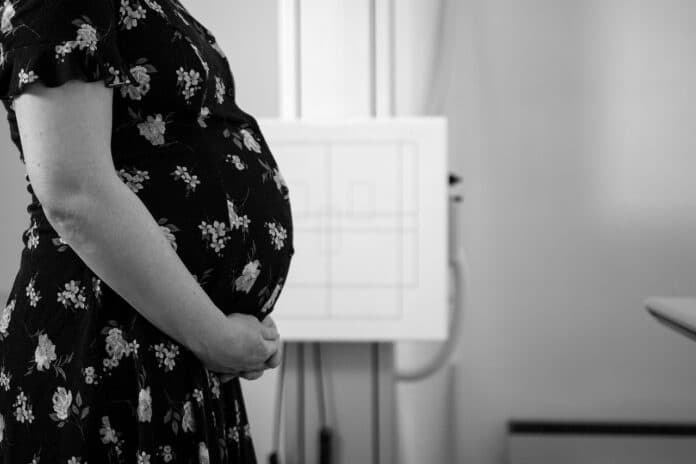The evidence for a link between acute respiratory infections during pregnancy and congenital anomalies in babies is limited and contradictory. A new study aimed to use record linkage to investigate the relationship between acute respiratory infections during the first trimester of pregnancy and congenital anomalies in babies.
Maternal infections can have serious implications for babies, including developing congenital anomalies. These are birth defects in the structure or function of the body, such as Down syndrome and neural tube defects, that can have long-lasting impacts.
Some infections, known as TORCH (Toxoplasmosis, Other (syphilis, varicella-zoster, parvovirus B19), Rubella, Cytomegalovirus (CMV), and Herpes virus), have been linked to congenital anomalies. However, there have been conflicting results regarding the impact of acute respiratory infections, such as influenza.
According to new UNSW research published in BMC Pregnancy and Childbirth, severe respiratory infections during the first trimester are associated with an increased risk of some heart defects.
Lead author Dr. Abrar Chughtai, from UNSW Medicine & Health, said, “There is limited evidence around this issue. But our study supports that there is an association between severe respiratory infections during pregnancy and selected cardiovascular anomalies in babies.”
Previous studies frequently asked new mothers whose babies were either healthy or had congenital issues if they had had a respiratory infection while pregnant.
Dr. Chughtai said, “The strength of our study is that we used hospital records only and didn’t rely on participants’ memory.”
The study linked maternal and infant health records from almost 1.5 million births in NSW between 2001 and 2016. The health information included births, congenital problems, and hospital admissions for severe respiratory infections during pregnancy.
Researchers discovered a link between severe respiratory infections and specific cardiovascular abnormalities. Seven (0.45%) of the 1547 mothers hospitalized for respiratory infections during the first trimester of pregnancy had babies with these heart and circulation issues. In the other 1,441,327 mothers in the study, 1724 (0.12%) had babies with these cardiovascular abnormalities.
Dr. Chughtai said, “After controlling for other factors, still, respiratory infections were associated with selected cardiovascular defects.”
“The risk is three times higher if the mother had an infection during the first trimester of pregnancy.”
This study discovered that if the mother had influenza during the first trimester of pregnancy, the rates of selected major cardiovascular anomalies in babies were higher, but this was not statistically significant.
According to scientists, numerous possible explanations exist for the link between respiratory infections early in pregnancy and cardiac defects, including the mother’s use of antibiotics or other medications to treat infections.
Dr. Chughtai said, “For example, some infectious diseases may pass directly to the baby across the placenta, leading to problems in development.”
Dr. Chughtai said, “Another reason is the use of medications. The mother may need to take antibiotics or some other drugs to treat infections. These may he baby.”
Dr. Chughtai said. “Moreover, if the mother has a fever due to infection, there are metabolic changes in the body. These metabolites may cross the placenta, which may affect the baby. “High fever may also impair protein synthesis and causes cell death, resulting in congenital anomalies.”
Several other questions remain, including the effects of COVID-19, which emerged after the 2001-2016 study period.
Dr. Chughtai said, “Of course, it’s an interesting question, and we want to address this issue in a follow-up study.” So far, from other studies, there is no evidence that COVID-19 increases the risk of congenital abnormalities. But this is only initial research.”
Dr. Chughtai said, “There are well-established risk factors, for example, X-rays and smoking, but infection is also a risk.”
Infection-related fevers also cause metabolic changes in the mother’s body, and these metabolites may pass through the placenta, resulting in congenital anomalies. To prevent congenital abnormalities, the researchers advise avoiding respiratory infections as much as possible during pregnancy. Pregnant women can get an effective, safe, and readily available influenza vaccination.
Journal Reference:
- Chughtai, A.A., et al. Associations between severe and notifiable respiratory infections during the first trimester of pregnancy and congenital anomalies at birth: a register-based cohort study. BMC Pregnancy Childbirth. DOI: 10.1186/s12884-023-05514-8
